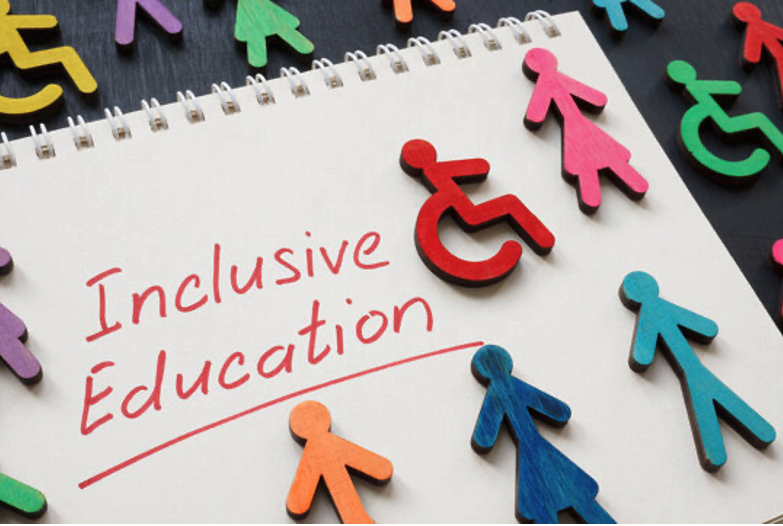Fostering Inclusive Learning Environments: A Comprehensive Guide for Supporting Adult Learners with Autism in the Community

Empowering Adult Learners with Special Needs: Building Life Skills for Independence

Fostering Inclusive Education: How Schools Can Support Students with Special Needs in the General Education Classroom
Fostering Inclusive Learning Environments: A Comprehensive Guide for Supporting Adult Learners with Autism in the Community
Creating an inclusive and supportive community for adult learners with autism necessitates a concerted effort from all team members. By understanding and addressing each individual’s unique needs and implementing practical strategies, we can foster an environment where everyone, including those with autism, has the opportunity to thrive. Embracing the role of a tutor for autistic children becomes integral to this approach, providing personalized support that enhances learning outcomes and overall well-being. Through collaboration and commitment, communities can create spaces that empower and celebrate the diverse strengths of individuals with autism.
Autism Spectrum Disorder (ASD) is a neurodevelopmental condition that manifests uniquely in individuals, impacting communication, social interactions, and behavior. Although much attention has been directed towards supporting children with autism, there’s a growing awareness of the distinctive challenges faced by adults on the spectrum. This article delves into the characteristics of adult learners with autism and presents practical strategies to facilitate their integration into communities.
Understanding Adult Learners with Autism
Adults with autism encounter diverse challenges affecting their learning and community engagement. Acknowledging the broad spectrum of autism is crucial, considering the array of strengths and weaknesses displayed by individuals. The following key aspects should be considered when working with adult learners with autism:
Communication Differences
Many adults with autism grapple with social communication difficulties, such as interpreting non-verbal cues, maintaining eye contact, or understanding language subtleties. Clear and direct communication strategies become essential to facilitate comprehension and engagement.
Sensory Sensitivities
Sensory sensitivities are prevalent among adults with autism, ranging from hypersensitivity to certain stimuli to seeking sensory stimulation. It is vital to create supportive environments that accommodate sensory needs to foster comfort and focus in learning settings.
Routine and Predictability
A substantial number of individuals with autism find solace in routine and predictability. Unexpected changes or disruptions can be overwhelming, emphasizing the importance of establishing a structured and consistent learning environment. This reduces anxiety and enhances the overall learning experience for adults on the spectrum.
Individualized Learning Styles
Recognizing and accommodating diverse learning styles is key. Some individuals with autism excel in visual learning, while others prefer hands-on experiences. Tailoring teaching methods to suit individual preferences fosters a more inclusive and effective learning environment, enhancing the overall educational experience.
Supportive Strategies for Community Integration
To integrate individuals with autism into the community effectively, a comprehensive and collaborative approach is essential. Involving educators, community leaders, employers, and peers is crucial. The following practical strategies are aimed at supporting adult learners with autism:
Promote Inclusive Learning Environments
Encourage educational institutions and community programs to adopt inclusive practices. Provide training for educators and community leaders on autism awareness and teaching strategies that accommodate diverse learning styles. Emphasize the significance of creating a supportive atmosphere for adult learners, with a focus on the role of a tutor for autistic children in personalized education.
Facilitate Social Skills Training
Organize social skills training programs specifically designed for adults with autism. These programs can focus on improving communication, building relationships, and navigating social situations. Incorporate role-playing and real-life scenarios to enhance the practical application of learned skills, promoting better integration into social settings.
Create Peer Support Networks
Establish peer support groups where adult learners with autism can connect with others facing similar challenges. Peer support fosters a sense of belonging and provides a safe space for sharing experiences, tips, and coping mechanisms. Encourage the formation of a supportive community that understands the unique needs of individuals on the autism spectrum.
Offer Vocational Training and Employment Supports
Collaborate with local businesses to create vocational training opportunities for adults with autism. Provide guidance on job applications, interview skills, and workplace etiquette. Foster an inclusive workplace culture that values neurodiversity, recognizing the unique strengths individuals with autism bring to the workforce. Explore the critical role of vocational tutors for autistic adults in facilitating skill development and workplace integration.
Provide Sensory-Friendly Spaces
Design public spaces, including educational institutions, libraries, and community centers, with sensory considerations in mind. Create quiet zones, use soft lighting, and minimize sensory triggers to ensure a comfortable environment for individuals with autism. Implementing sensory-friendly practices contributes to a more inclusive community for adult learners.
Encourage Self-Advocacy
Empower adult learners with autism to become self-advocates. Provide resources and support to help them articulate their needs, preferences, and strengths. Encourage open communication between individuals with autism and their educators, employers, and peers, fostering a sense of agency and active participation in their learning and community experiences.
Offer Flexibility in Learning Approaches
Recognize and accommodate different learning styles. Provide flexibility in learning approaches, allowing individuals with autism to choose methods that align with their strengths and preferences. Incorporate visual aids, interactive activities, or alternative assessment methods to enhance engagement and understanding. Tailoring learning experiences to individual needs promotes a more inclusive and effective educational environment.
Related posts






